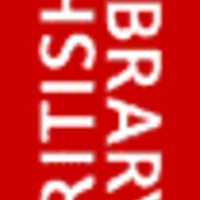London Calling Asia: The modern school of classical poetry
The recording from the Asian Club program features Ruth Pitter sharing insights on the modern school of classical poetry and Sir Edmund Hillary discussing an incident on Theron's Voyage to the Antarctic. The discussion delves into the influences leading to the emergence of the Modernist school of poetry.
Transcript
1:00 Speaker 1: What in your opinion are the influences that made for the emergence of this peculiar disease called the Modernist school of poetry, and what are your wills on the literary merit of their work. S2: That is a very interesting question, a very profound question. I could talk on it for half an hour. And of course as I have seen the emergence of this phenomenon, it has always engaged my attention to a great extent but I think the only thing that really illuminated it for me was something that goes far back in the history of Western Europe, the history of nothing more or less than the history of Neo-Platonism, which gave rise to the phenomenon called the Romantic Movement, which again was imported into England by way of the Court through French Poetry. 1:51 And I think this is a profound heresy, it is the phenomenon of chivalry, of courtly love of Neo-platonism which divorces the soul from the body, that is the ultimate ideal. The soul is so pure that nothing the flesh does can harm them. The profound heresy that one must divorce the soul from the body. And I think is it Romanticism . Essentially, this heresy, is always running into shallower and shallower water and now shows in its ultimate manifestation, which is chaos. 2:25 I heard it said that the Classicist begins by writing for himself and ends writing for all men and for all kind. The Romantic, begins by writing for a clique and ends by writing only for himself. And I think Modernism is an end product of Romanticism. Like an end product or a sort of fermentation, which is profoundly amoral and profoundly unspiritual, and we live in very bad times spiritually and it will take all the armour that we have in order to get through them. This art is a manifestation of the bad times. 3:06 ( Female speaker). Miss Pitter, is there anything else you would like .. 3:09 ( Male speaker interrupts) so what always interested me was the context of modern poetry as well manifested by the writings of TS Eliot and the like..and now your explanation of the cliquish nature of this romantic.. uh uh romantic departure. And also the immoral nature of it, I think answers my question most perfectly. Thank you. View more +View less -- Edited Title
- Archivist's Original Title
- Original description
- Transcription
- Time duration
- Recording date of the original material
- Broadcast Date
- Country Name
- Recording place
- Resource Language
- Performer/Speaker
- Tags, Keywords
- Archivist Category
- Recording context
- Collection source citation
- History of ownership
- Holding Institution of Original Materials
- Licensing Institution
- Accessing Institutions
- Copyright Information
- Physical format
- Original item number
- SEAH Identifier
- Broadcast Topic
- Description
-
London Calling Asia: The modern school of classical poetry
-
London Calling Asia: The modern school of classical poetry
-
The recording from the Asian Club program features Ruth Pitter sharing insights on the modern school of classical poetry and Sir Edmund Hillary discussing an incident on Theron's Voyage to the Antarctic. The discussion delves into the influences leading to the emergence of the Modernist school of poetry.
-
1:00 Speaker 1: What in your opinion are the influences that made for the emergence of this peculiar disease called the Modernist school of poetry, and what are your wills on the literary merit of their work. S2: That is a very interesting question, a very profound question. I could talk on it for half an hour. And of course as I have seen the emergence of this phenomenon, it has always engaged my attention to a great extent but I think the only thing that really illuminated it for me was something that goes far back in the history of Western Europe, the history of nothing more or less than the history of Neo-Platonism, which gave rise to the phenomenon called the Romantic Movement, which again was imported into England by way of the Court through French Poetry. 1:51 And I think this is a profound heresy, it is the phenomenon of chivalry, of courtly love of Neo-platonism which divorces the soul from the body, that is the ultimate ideal. The soul is so pure that nothing the flesh does can harm them. The profound heresy that one must divorce the soul from the body. And I think is it Romanticism . Essentially, this heresy, is always running into shallower and shallower water and now shows in its ultimate manifestation, which is chaos. 2:25 I heard it said that the Classicist begins by writing for himself and ends writing for all men and for all kind. The Romantic, begins by writing for a clique and ends by writing only for himself. And I think Modernism is an end product of Romanticism. Like an end product or a sort of fermentation, which is profoundly amoral and profoundly unspiritual, and we live in very bad times spiritually and it will take all the armour that we have in order to get through them. This art is a manifestation of the bad times. 3:06 ( Female speaker). Miss Pitter, is there anything else you would like .. 3:09 ( Male speaker interrupts) so what always interested me was the context of modern poetry as well manifested by the writings of TS Eliot and the like..and now your explanation of the cliquish nature of this romantic.. uh uh romantic departure. And also the immoral nature of it, I think answers my question most perfectly. Thank you.
-
0:02:36
-
1956-02-07
-
1956-02-12
-
English
-
Poetry
-
Modernism
-
Interview
-
Spoken voice
-
Radio Programme
-
Dubbed by the British Library from original recordings donated by the BBC.
-
78 rpm, 30cm
-
T10271R C2
-
BBC00002
-
Culture | Sport
-
Introduction to recording: This is national sound archive Tape T10271 and this is Track R. It starts wth the back of the BBC Sound archives 78 RPM disc 12 " diameter No. 22710. This has 2 bands. Band 1 Ruth Pitter on the modern school of poetry from Asian Club broadcast on London Calling Asia on the 12th of February 1956, having been pre-recorded on the 7th of February 1956. Duration 2 minutes and 36 seconds. Band 2 Sir Edmund Hilllary on an incident on Theron's Voyage to the Antarctic from International Press Conference, broadcasted on London Calling Asia on the 29th of March, having been recorded on the 28th of March 1956. Duration 1 Minute and 30 seconds. 78 RPM disc 12 " diameter No. 22710. BBC Far Eastern Service (London Calling Asia) 1956-03-28
Linked resources
| Title | Class |
|---|---|
| Ruth Pitter | Person |
 Sir Edmund Hillary Sir Edmund Hillary |
Person |

